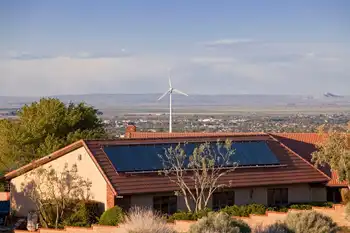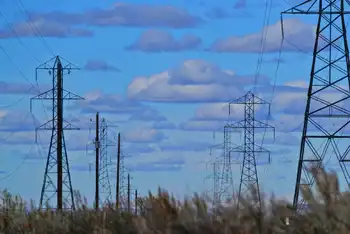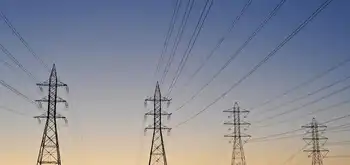Rural residents see new nuclear plant as boon
Jobs are a big reason most residents favor Progress Energy's plan to build the nation's first nuclear power reactors since the Watts Bar plant in Tennessee came on line in 1996 — even if it brings some environmental risk.
"There's an awful lot of hope here," said Bill Lake, the mayor of this village of 1,700 residents about 90 miles north of Tampa, where the Florida peninsula begins curving west into the Panhandle.
Levy County, population 39,000, has seen plenty of job losses in the past two years as its unemployment rate almost tripled to 12.1 percent. But there is hope that the proposed plant will ignite a lethargic economy in one of the poorest areas of Florida, where the per capita income averages less than $15,000 annually.
The North Carolina-based utility initially estimated it would have the plant online by 2016 or 2017 at a cost of $17 billion, but the date was moved to 2020 since the company cannot get approval from the Nuclear Regulatory Commission before all site and safety reviews are completed.
Watts Bar, the last U.S. nuclear plant, opened after 22 years of construction and cost $7 billion, about 40 percent of what the Levy County project is projected to cost.
Several other nuclear plants are planned in the Southeast, but all have been delayed. Duke Energy is looking into a new plant in Gaffney, S.C., to serve customers in the Carolinas while Progress is considering a new unit at its existing Harris nuclear plant in New Hill, N.C.
The economy forced the Tennessee Valley Authority to trim its plans for a potential four-unit nuclear plant in northeast Alabama to one reactor. In Virginia, Dominion Resources Inc. has gotten federal approval for an early site permit to add a third reactor to its North Anna Power Station in Louisa, about 60 miles north of Richmond. The company, however, has not announced any construction plans.
The Levy County plant's principal contractors — The Shaw Group and Westinghouse — are holding off on adding employees while the construction application negotiates the bureaucracy. It has received the necessary approval from state regulators, but hasn't gotten federal clearance.
The delay has given the opposition more time to challenge the application. Most of it has come from outside Levy County, primarily organized environmental and anti-nuclear groups. Some said the money would be better spent on solar, wind and other alternative energy.
"Nothing's a good deal if you don't need it," said Rhonda Roff, a prominent South Florida activist who argues that population projections don't warrant an expensive new nuclear plant. Roff said citizens will also have an unnecessary financial burden.
Not since Elvis left this area nearly a half century ago have things created so much commotion.
Inglis' annual budget is $670,000, enough to pay for a five-person police department, but not enough for a much-needed municipal sewer system. Many of the homes are built deep into the woods off the main roads.
That tranquility will be gone once the heavy equipment and hundreds of laborers roll in when work begins on the 5,200-acre power plant site near the county's southernmost boundary. The reactors are projected to produce power for more than 1 million homes.
The cost, however, is already being passed along to Progress' 1.7 million Florida customers, with heavy concentrations in the Tampa Bay area, Orlando suburbs and the Big Bend region that includes Levy County.
"Under our existing economy and growth calculations, these nuclear plants are completely unnecessary and consuming all the money the state would be able to put into clean, renewable energy," Roff said.
But for many residents, the prospect of good jobs outweighs potential risks. Progress spokeswoman Cherie Jacobs said about 3,000 workers would build the plant when construction starts, perhaps in 2012. About 800 full-time positions would be created to staff the two generators when they open.
"They hope it improves the economy, but some do have their concerns about the environment," said Luhanna Wilsey, a short-order cook at a local gas station who has lived in the area since 1973.
Her son is among those looking for permanent work.
"If they (Progress Energy) hire locally first for the unskilled labor positions it would help our economy a lot," Wilsey said.
The new plant is certain to disturb the tranquility of Levy County, where about a fifth of the land is preserved for state and national wildlife areas. They are home to thousands of nesting shorebirds, including the bald eagle and elusive roseate spoonbill.
The waterways — some of the state's most pristine — provide recreational opportunities, and some nuclear plant opponents are worried about marshlands and wildlife. Others are concerned about the company's plan to store spent nuclear fuel onsite.
But they are in the minority — most see the reactors as an economic boon.
Pari Nagda and her husband Bobby purchased a gas station and convenience store on the southeast corner of a busy intersection of U.S. 19/98 and State Road 40 two years ago. They wanted to buy additional property, but speculators drove the price far above the appraised value.
"There's lot of anticipation as far as the property owners go in what they might be able to get for their property," real estate agent Nancy Little Lewis said. "People want more for their property than it's worth.
"They say, 'Well, the power plant is coming.'"
Related News

High Natural Gas Prices Make This The Time To Build Back Better - With Clean Electricity
NEW YORK - Experts are forecasting serious sticker shock from home heating bills this winter. Nearly 60 percent of United States’ households heat their homes with fossil fuels, including natural gas, propane, or heating oil, and these consumers are expected to spend much more this winter because of fuel price increases.
That could greatly burden many families and businesses already operating on thin margins. Yet homes that use electricity for heating and cooking are largely insulated from the pain of volatile fuel markets, and they’re facing dramatically lower price increases as a result.
Projections say cost increases for households could range anywhere…




